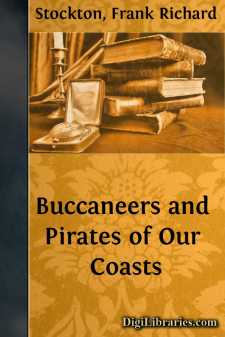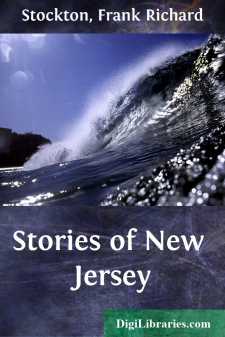Categories
- Antiques & Collectibles 13
- Architecture 36
- Art 48
- Bibles 22
- Biography & Autobiography 816
- Body, Mind & Spirit 145
- Business & Economics 28
- Children's Books 18
- Children's Fiction 14
- Computers 4
- Cooking 94
- Crafts & Hobbies 4
- Drama 346
- Education 58
- Family & Relationships 59
- Fiction 11831
- Foreign Language Study 3
- Games 19
- Gardening 17
- Health & Fitness 34
- History 1378
- House & Home 1
- Humor 147
- Juvenile Fiction 1873
- Juvenile Nonfiction 202
- Language Arts & Disciplines 89
- Law 16
- Literary Collections 686
- Literary Criticism 179
- Mathematics 13
- Medical 41
- Music 40
- Nature 179
- Non-Classifiable 1768
- Performing Arts 7
- Periodicals 1453
- Philosophy 66
- Photography 2
- Poetry 897
- Political Science 203
- Psychology 45
- Reference 154
- Religion 516
- Science 126
- Self-Help 86
- Social Science 82
- Sports & Recreation 34
- Study Aids 3
- Technology & Engineering 59
- Transportation 23
- Travel 463
- True Crime 29
Frank Richard Stockton
Frank Richard Stockton (1834-1902) was an American writer and humorist, best known for his short story "The Lady, or the Tiger?" which leaves readers with a tantalizingly ambiguous ending. His works often featured whimsical and fantastical elements, and he was celebrated for his wit and narrative inventiveness. Throughout his career, Stockton contributed to various magazines and authored numerous novels and story collections that captivated both children and adults.
Author's Books:
Sort by:
JOHN GAYTHER'S GARDEN The garden did not belong to John Gayther; he merely had charge of it. At certain busy seasons he had some men to help him in his work, but for the greater part of the year he preferred doing everything himself. It was a very fine garden over which John Gayther had charge. It extended this way and that for long distances. It was difficult to see how far it did extend, there...
more...
A TALE OF NEGATIVE GRAVITY My wife and I were staying at a small town in northern Italy; and on a certain pleasant afternoon in spring we had taken a walk of six or seven miles to see the sun set behind some low mountains to the west of the town. Most of our walk had been along a hard, smooth highway, and then we turned into a series of narrower roads, sometimes bordered by walls, and sometimes by...
more...
THE MAGIC EGG The pretty little theatre attached to the building of the Unicorn Club had been hired for a certain January afternoon by Mr. Herbert Loring, who wished to give therein a somewhat novel performance, to which he had invited a small audience consisting entirely of friends and acquaintances. Loring was a handsome fellow about thirty years old, who had travelled far and studied much. He had...
more...
In the spring of a certain year, not far from the close of the nineteenth century, when the political relations between the United States and Great Britain became so strained that careful observers on both sides of the Atlantic were forced to the belief that a serious break in these relations might be looked for at any time, the fishing schooner Eliza Drum sailed from a port in Maine for the banks of...
more...
CHAPTER I. THE ARRIVAL OF THE EUTERPE-THALIA It was about noon of a day in early summer that a westward-bound Atlantic liner was rapidly nearing the port of New York. Not long before, the old light-house on Montauk Point had been sighted, and the company on board the vessel were animated by the knowledge that in a few hours they would be at the end of their voyage. The vessel now speeding along the...
more...
Chapter I When I was a boy I strongly desired to be a pirate, and the reason for this was the absolute independence of that sort of life. Restrictions of all sorts had become onerous to me, and in my reading of the adventures of the bold sea-rovers of the main, I had unconsciously selected those portions of a pirate's life which were attractive to me, and had totally disregarded all the rest. In...
more...
The North American Indians, the earliest inhabitants of this country of whom we know anything definite, were great story-tellers; and their histories consist entirely of stories handed down from parents to children, or, more likely, from grandparents to grandchildren, for grandfathers and grandmothers are generally more willing to tell stories than fathers or mothers. And so these traditions, probably...
more...
A man's birth is generally considered the most important event of his existence, but I truly think that what I am about to relate was more important to me than my entrance into this world; because, had not these things happened, I am of the opinion that my life would have been of no value to me and my birth a misfortune. My father, Joshua Cuthbert, died soon after I came to my majority, leaving me...
more...
CHAPTER I. TREATING OF A NOVEL STYLE OF DWELLING HOUSE. For some months after our marriage, Euphemia and I boarded. But we did not like it. Indeed, there was no reason why we should like it. Euphemia said that she never felt at home except when she was out, which feeling, indicating such an excessively unphilosophic state of mind, was enough to make me desire to have a home of my own, where, except...
more...
In the very olden time there lived a semi-barbaric king, whose ideas, though somewhat polished and sharpened by the progressiveness of distant Latin neighbors, were still large, florid, and untrammeled, as became the half of him which was barbaric. He was a man of exuberant fancy, and, withal, of an authority so irresistible that, at his will, he turned his varied fancies into facts. He was greatly...
more...











